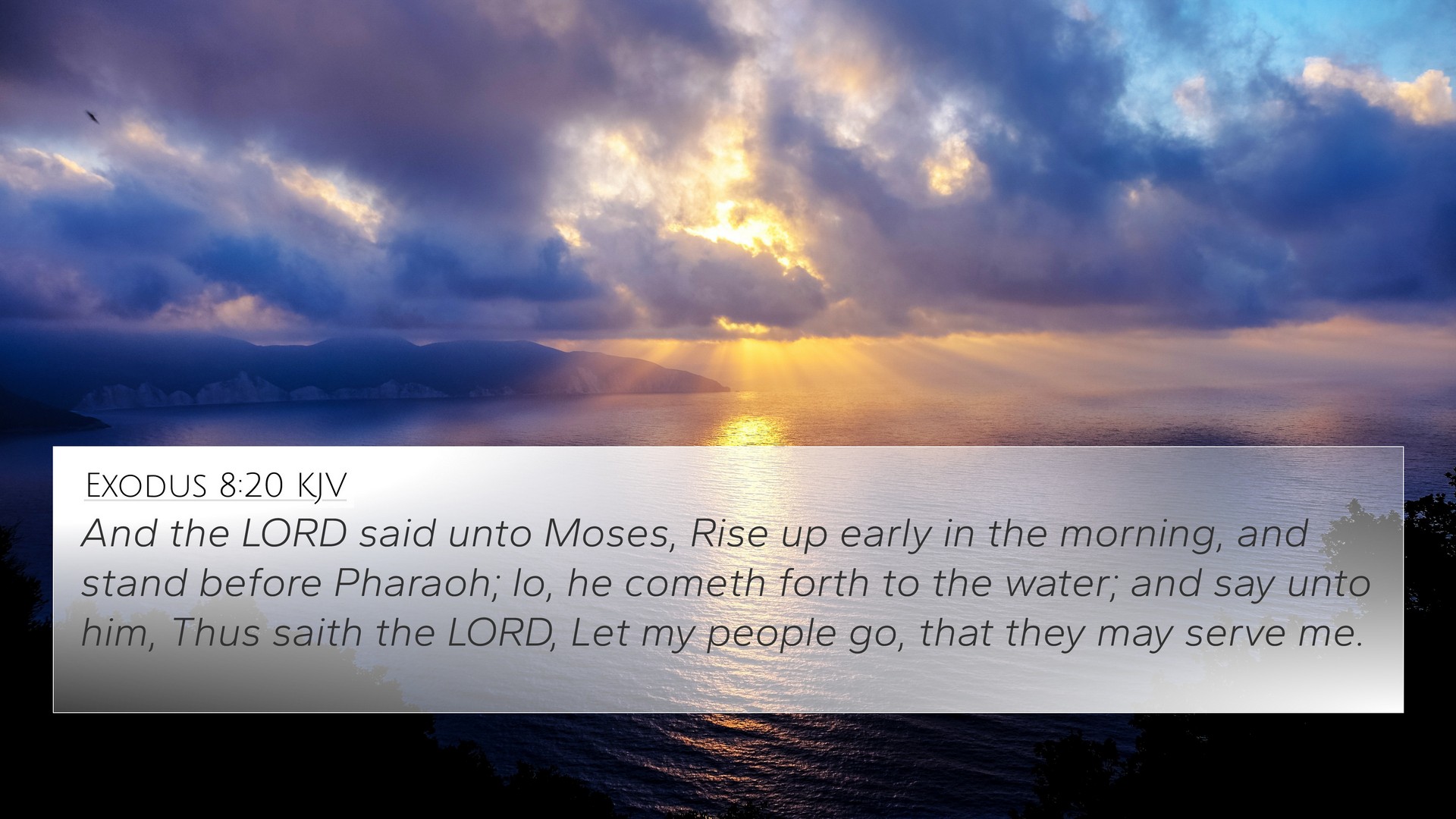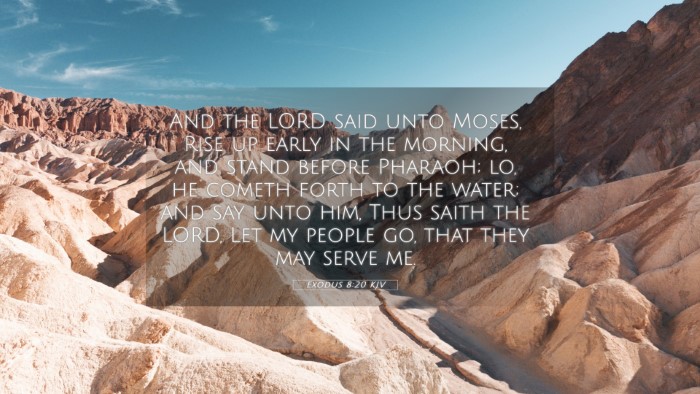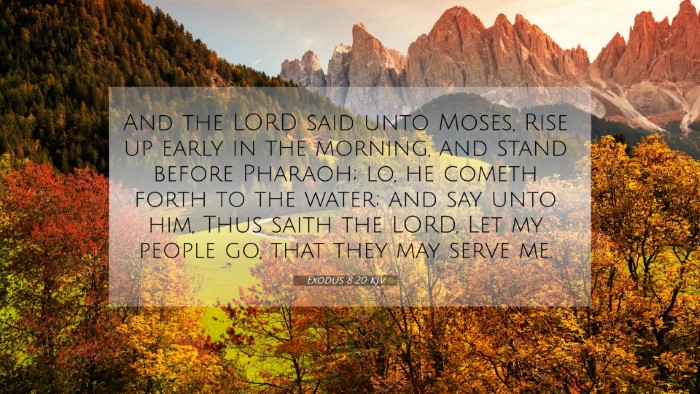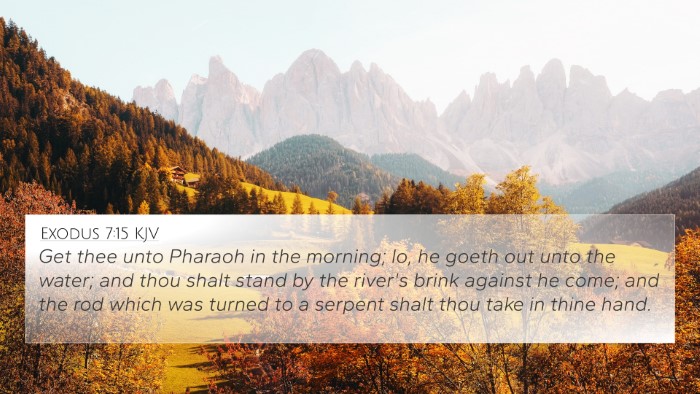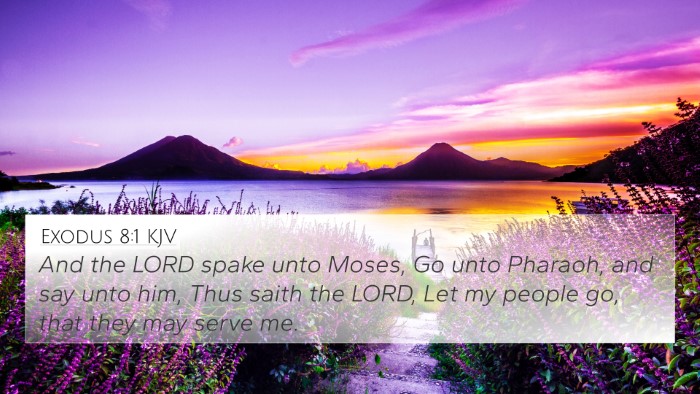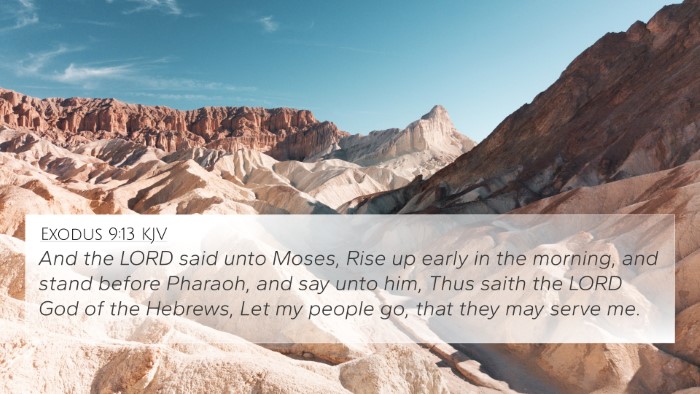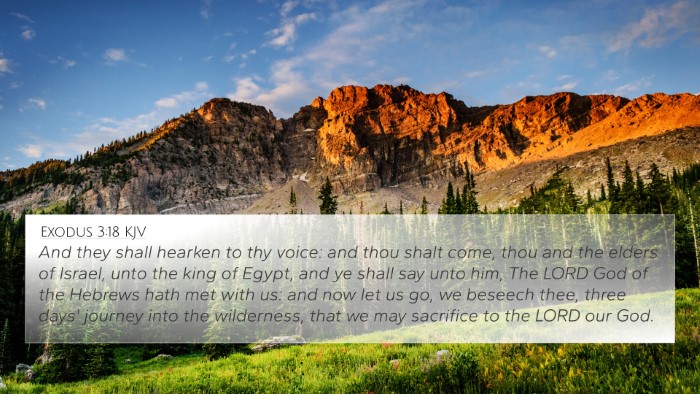Understanding Exodus 8:20
Verse: Exodus 8:20 - "And the LORD said unto Moses, Rise up early in the morning, and stand before Pharaoh; lo, he cometh forth to the water; and say unto him, Thus saith the LORD, Let my people go, that they may serve me."
Summary of Exodus 8:20
This verse marks a significant moment in the interaction between Moses and Pharaoh. God instructs Moses to confront Pharaoh early in the morning, emphasizing the urgency and importance of the message he is to deliver. The phrasing "Let my people go, that they may serve me" reflects God's desire for His people to worship Him freely, highlighting themes of liberation and obedience.
Commentary Insights
- Matthew Henry:
Henry emphasizes the divine authority of God’s command. He notes that Moses’ early confrontation with Pharaoh symbolizes the persistence required in addressing stubbornness. The command to "let my people go" underscores God's right over His people and their purpose—serving Him.
- Albert Barnes:
Barnes comments on the significance of standing before Pharaoh at the water. The location suggests a premeditated meeting, as Pharaoh often visited the Nile in the morning. This action illustrates God’s sovereign control over the situation and the dissonance between Pharaoh's power and God’s will.
- Adam Clarke:
Clarke provides insights into the phrase "that they may serve me." He interprets it as a reminder of God’s call for worship and obedience. Clarke outlines that the message is not merely about liberation from slavery, but a transition towards a life dedicated to God’s service.
Thematic Connections and Cross-References
Exodus 8:20 acts as a pivotal point connecting various themes within the biblical narrative, particularly concerning God’s authority, human freedom, and divine purpose. Below are several related Bible verses that enhance the understanding of this passage:
- Exodus 5:1: "Afterward, Moses and Aaron went in and told Pharaoh, 'Thus says the LORD God of Israel: “Let My people go, that they may hold a feast to Me in the wilderness.”'
- Exodus 7:16: "And you shall say to him, 'The LORD God of the Hebrews has sent me to you, saying, “Let My people go, that they may serve Me in the wilderness.”'
- Exodus 9:1: "'Then the LORD said to Moses, 'Go in to Pharaoh and tell him, “Thus says the LORD God of the Hebrews: 'Let My people go, that they may serve Me.'”'
- Isaiah 43:21: "This people I have formed for Myself; they shall declare My praise."
- John 4:23: "But the hour is coming, and now is, when the true worshipers will worship the Father in spirit and truth; for the Father is seeking such to worship Him."
- Galatians 5:13: "For you, brethren, have been called to liberty; only do not use liberty as an opportunity for the flesh, but through love serve one another."
- Romans 12:1: "I beseech you therefore, brethren, by the mercies of God, that you present your bodies a living sacrifice, holy, acceptable to God, which is your reasonable service."
Inter-Biblical Dialogue
The command from Exodus has wide-reaching implications in both the Old and New Testaments. It is echoed in the teachings of Jesus regarding freedom and service, as well as in the writings of Paul who emphasizes the importance of serving God in freedom. The Bible’s cohesive message on liberation for the purpose of worship creates a profound intertextual dialogue.
Conclusion
Exodus 8:20 stands as a critical interface between divine authority and human responsibility. The interplay of command and freedom not only highlights God's desire for His people to worship Him but also serves as an enduring principle for believers today. By examining related passages, one can appreciate the thematic richness and continuity of God's message throughout Scripture.
Tools for Study: To further explore connections and thematic overlaps, consider utilizing a bible concordance, various bible reference resources, and engaging in a thorough bible cross-reference guide as tools for in-depth cross-referencing Bible study.
